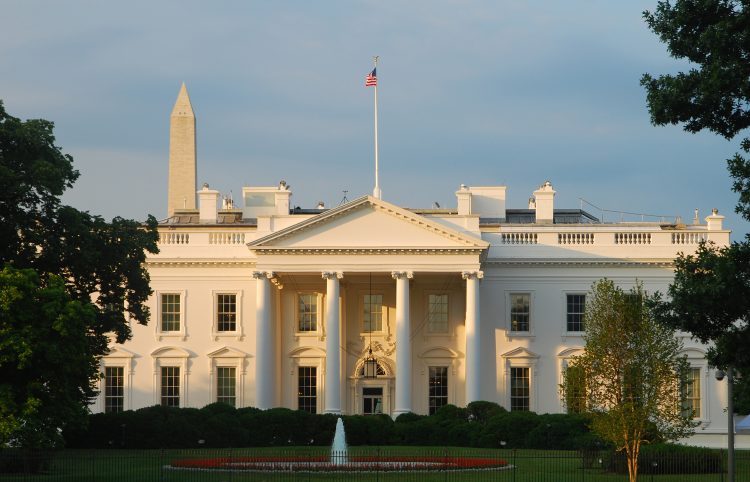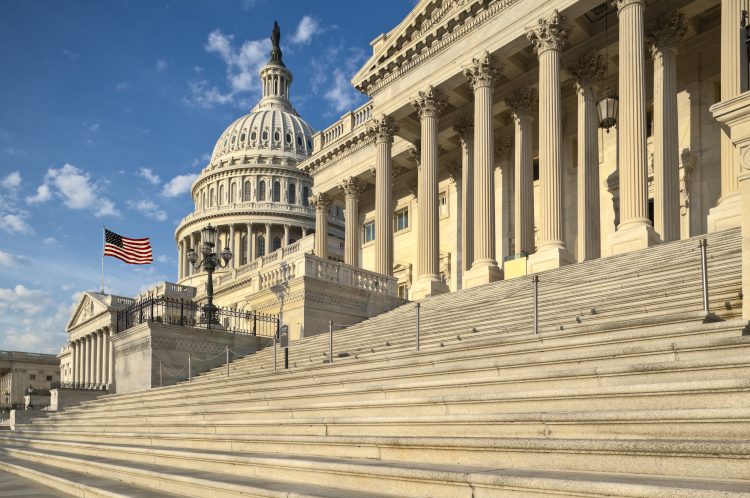This week on Facing the Future, we got an update on COVID-19 as another holiday travel season is approaching. We discussed the outlook with Dr. Jodie Guest, an epidemiologist and professor at the Rollins School of Public Health and School of Medicine at Emory University in Atlanta Georgia. Concord Coalition policy director Tori Gorman and national field director Phil Smith joined the conversation.
Later in the program, Concord Coalition chief economist Steve Robinson joined me and Tori to discuss the latest developments in Washington and on the economic front. Among the topics we looked into were the status of government funding bills and the Fed’s decision to hold rates steady for now.
It almost seems like a ritual now that we brace ourselves for a new COVID surge around the holidays when people are traveling more and packed together in close quarters. Dr. Guest said we can expect an uptick this year as well, but not nearly as bad as in the pandemic’s early years.
“That’s not necessarily great news,” she said, “but it’s not as bad as it could be. The difference is that Covid still continues to have a summer wave as well. And so that’s what makes it a little different than the flu and RSV. We had anticipated in the beginning that we would start to see it move almost exclusively into the winter season, and that has not happened. So it’s kind of a two-wave virus at this point, and it’s been pretty consistent now for the last two years.”
She said that tracking new COVID cases has become more difficult since the federal health emergency expired. On the plus side, she noted, “we do have a new vaccine out, and we’re no longer using the term ‘booster.’ It is our new seasonal Covid vaccine, and it is targeted to go after the most common Omicron subvariant that was circulating this summer. The disappointing news is that very few people have taken that vaccine, about seven percent of adults and only two percent of children have gotten it so far in the United States, and that is tracking behind last year’s booster.”
As for lessons learned, Guest observed that, “The vaccines are remarkable. They were so much better than we anticipated, and they were developed so quickly, it was a massive success. The communication around what that meant was maybe not quite as good as it could have been or should have been, and it did sew some mistrust. I think we had an undervalued, under-supported, and under-employed public health workforce at the beginning of the pandemic, and you cannot all of a sudden take on tremendously large work. We didn’t have our state and local health departments in a place where they could handle what was going on.”
Turning back to Capitol Hill, Gorman said that with a shutdown again looming on November 17, Congress has four basic options.
“They can put forward a ‘laddered’ continuing resolution with alternating expiration dates for certain appropriations bills. They can pass a ‘clean’ continuing resolution, whether it’s to the end of the calendar year or into January. They can pass what I call a ‘junked up’ continuing resolution, which funds the government but also carries a whole bunch of other stuff with it, including Biden’s emergency supplemental spending and maybe some border policies like FAA reauthorization. Or, option number four, we shut down.”
Robinson’s main message on the economy was that, “there are a lot of contrary signals that account for the Fed’s decision to hold rates where they are.”
“Ultimately,” he said, “the Fed’s job is to get inflation back to their target. They have a two percent inflation target and inflation has been running in the three and a half to four percent range. So they clearly have a ways to go if they want to hit their target, and their only tool to achieve that is to continue to push interest rates up, or at least hold them at a higher level than what a lot of the market participants would maybe prefer to see.”
Hear more on Facing the Future. I host the program each week on WKXL in Concord N.H., and it is also available via podcast. Join us as we discuss issues relating to national fiscal policy with budget experts, industry leaders, and elected officials. Past broadcasts are available here. You can subscribe to the podcast on Spotify, Pandora, iTunes, Google Podcasts, Stitcher, or with an RSS feed. Follow Facing the Future on Facebook, and watch videos from past episodes on The Concord Coalition YouTube channel.
Continue Reading










